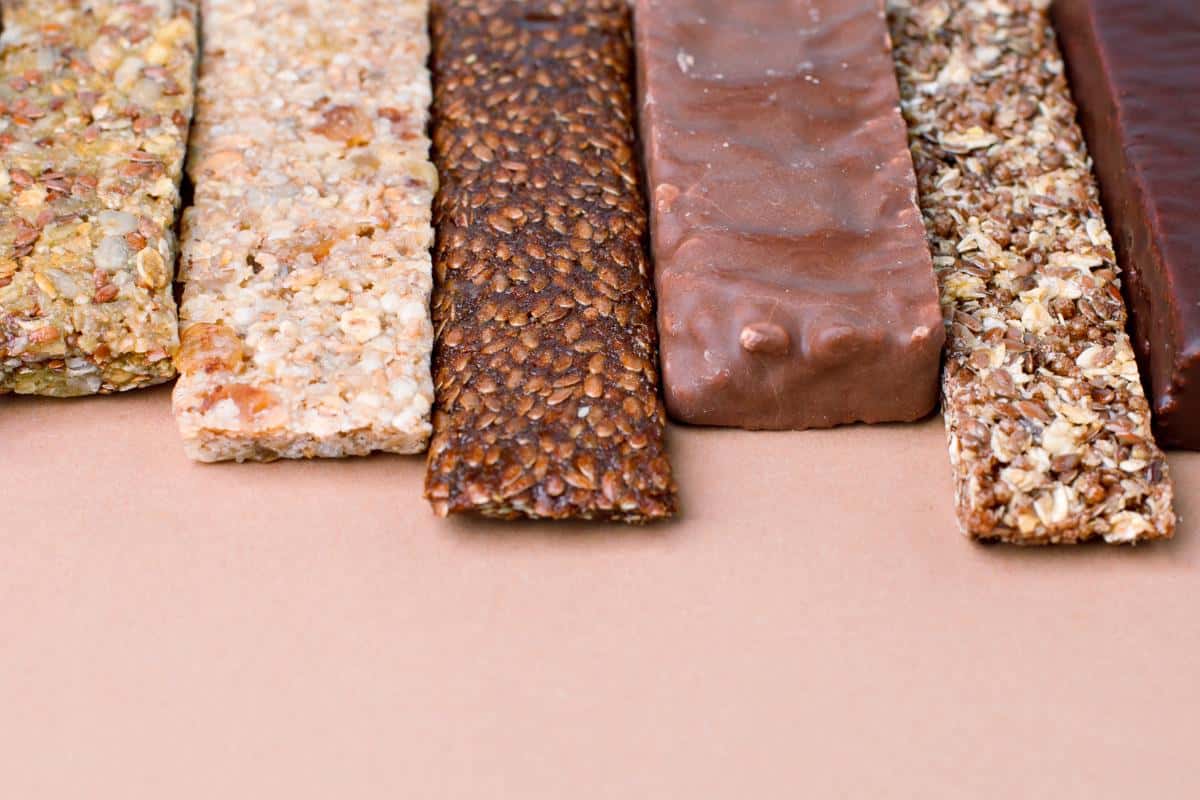Are protein bars healthy? Choosing the best protein bars
Protein bars are a popular on-the-go snack for fitness enthusiasts, busy professionals, and health-conscious individuals. It’s not hard to see why – they’re an easy way to boost protein intake and curb hunger. They often come in various flavours and promise numerous health benefits. However, not all protein bars are as healthy as you think.
In this blog post, I will discuss the pros and cons of protein bars and offer some alternatives to store-bought bars by sharing a couple of easy recipes you can make at home.

The Pros of Protein Bars
An easy source of protein
Protein bars can be a convenient and portable source of protein, especially for people who struggle to meet their protein requirements through regular meals alone. They are ideal for refuelling after a workout or as a quick snack during a busy day.
Aids muscle recovery
Protein is essential for muscle repair and recovery after exercise. Protein bars containing high-quality protein sources like whey, casein, or plant-based proteins can aid post-workout muscle recovery.
Helps with weight management
They can help manage weight by providing a satisfying snack that curbs hunger. Protein helps regulate appetite hormones and keeps you feeling full for longer, reducing the chances of overeating.
Helps with portion control
Most shop-bought choices are individually wrapped, making controlling portion sizes easier and avoiding mindless snacking. They are perfect for on-the-go snacks and lunchbox treats.
The Cons of Protein Bars
They can have a high sugar content
Many store-bought protein bars contain high amounts of added sugars, which can lead to blood sugar spikes and contribute to weight gain over time. It is essential to read labels carefully and opt for bars with lower sugar content or natural sweeteners.
They can contain artificial ingredients
Some protein bars contain artificial flavours, preservatives, and additives, which can harm overall health when consumed regularly. These additives can cause digestive issues in some individuals.
They can be high in calories
While protein bars can be beneficial as a snack or post-workout option, they can also pack many calories. Overconsumption can lead to excess calorie intake, hindering weight loss or even leading to weight gain.
They’re not a complete meal replacement.
Protein bars should not be considered complete meal replacements, as they often lack essential nutrients, such as fibre, vitamins, and minerals, in a well-balanced meal.
Protein Bar Recipes To Make At Home
For those seeking healthier alternatives, making your own protein bars at home is an excellent option. You can control the ingredients, adjust sweetness and customise the flavours to your liking. Here are three simple and nutritious protein bar recipes:
No-Bake Almond Chocolate Protein Bars
Ingredients
- 120g rolled oats
- 125g almond butter
- 60ml honey or maple syrup
- 30g chocolate protein powder
- 40g dark chocolate chips
- 35g chopped almonds
Method
- Combine rolled oats, almond butter, honey (or maple syrup), and chocolate protein powder until a sticky mixture forms.
- Fold in the chocolate chips and chopped almonds and ensure they are evenly mixed.
- Press the mixture firmly into a lined baking dish and refrigerate for 1 – 2 hours.
- Once firm, cut into snack-size bars.
Peanut Butter Banana Protein Bars
Ingredients
- 180g old-fashioned oats
- 125g natural peanut butter
- 60ml honey
- 1 ripe mashed banana
- 30g vanilla protein powder
- 40g chopped peanuts
Method
- Combine oats, peanut butter, honey, mashed banana, and vanilla protein powder in a large bowl until well-mixed.
- Fold in the chopped peanuts.
- Press the mixture into a lined baking dish and refrigerate for 2 hours.
- Once set, cut into snack-size bars.
Vegan Cherry Almond Protein Bars
Ingredients
- 150g pitted dates
- 150g almonds
- 75g dried cherries
- 30g plant-based protein powder
- 60g almond butter
- 30ml water
Method
- In a food processor, blend dates, almonds, dried cherries, plant-based protein powder, almond butter, and water until a sticky dough forms.
- Press the mixture firmly into a lined baking dish and refrigerate for 1-2 hours.
- Once set, cut into snack-size bars.
Summary
All of the above homemade protein bars can be stored in an airtight container in the fridge
Protein bars can be an easy and convenient way to boost protein intake and support your health goals. However, not all protein bars are as good for you as you may think.
Some store-bought options may contain high levels of sugar and artificial ingredients. For this reason, making your own protein bars at home allows you to control the ingredients and ensure a healthier and more nutritious snack.
Other articles you might like
If you have found this article helpful, here are a few others I think you may also like.
Homemade snicker bars that are vegan and high in protein